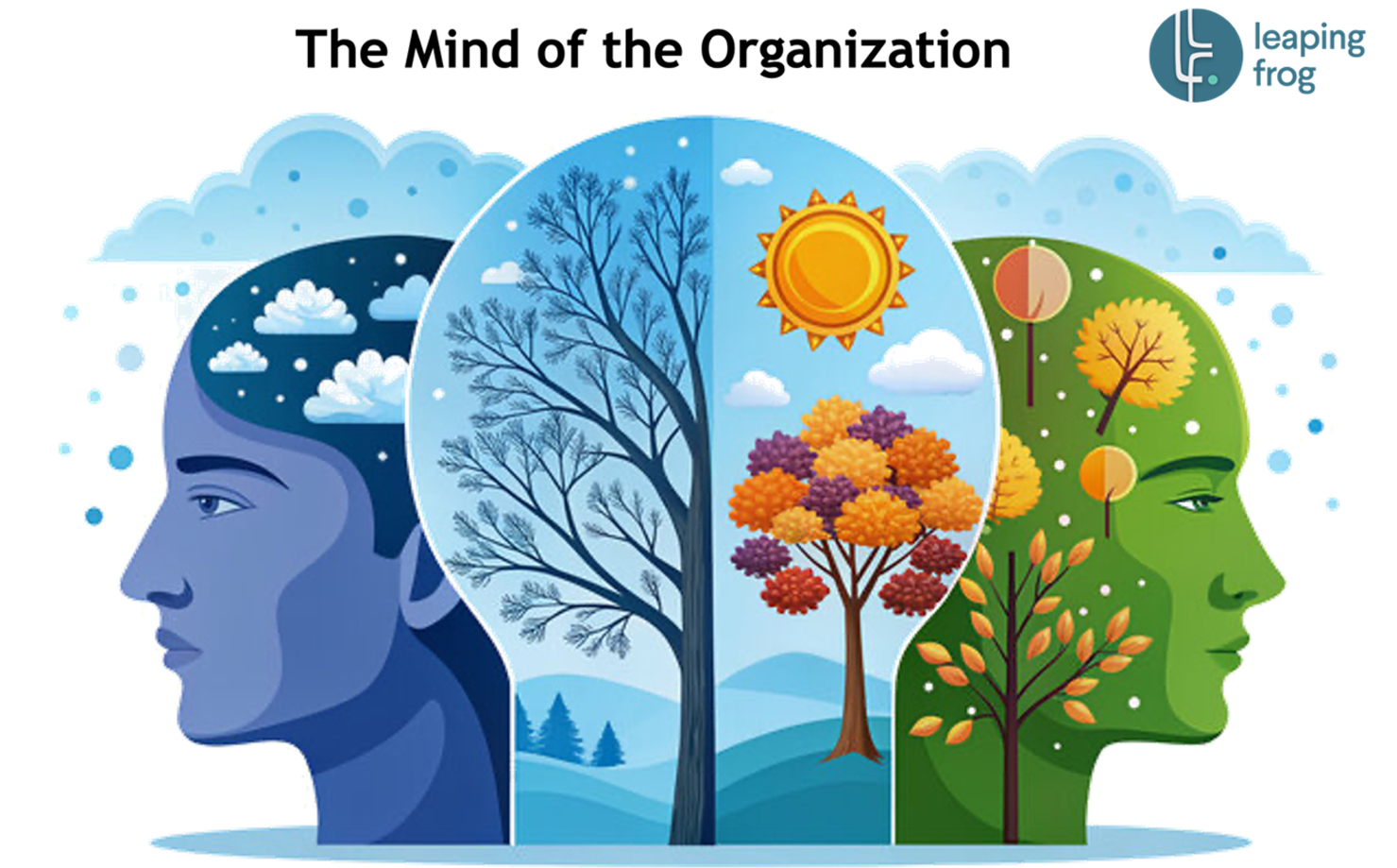
In psychology, Neurosis and Psychosis reveal two fundamental aspects of mental health: insight and awareness. Neurosis is characterized by the presence of “Insight” – an individual’s ability to recognize that something is wrong at the mental level —an awareness that prompts them to seek help and solutions. This insight reflects a functional mind that understands the problem and takes steps toward resolving it. In contrast, Psychosis, on the contrary, is the absence of “insight” and lacks this awareness. Even when the signs of emotional disorders are apparent to others, psychotic individuals deny or fail to recognize the issue. They remain stuck in the problem, never engaging the mind’s potential to seek help or change. This behavior, akin to an ostrich burying its head in the sand, is what I often refer to as the “ostrich syndrome”—ignoring reality, hoping it will disappear.
The same can be said of organizations. Organizations with an aware, functioning “mind” are like Neurotic individuals—they can recognize their challenges and take swift action to address them. They engage their collective awareness to identify problems and are willing to undergo conscious diagnosis and seek appropriate treatment, whether through internal mechanisms or external expertise. These organizations, aware of their internal dynamics, are proactive in seeking cures. Their organizational mind is alert, reflective, and deliberate, allowing them to continuously improve, grow, and evolve.
In contrast, Psychotic organizations fail to engage their organizational mind fully. They operate in a state of denial, unaware of or unwilling to acknowledge the problems that hinder their progress. These organizations don’t use their mind—their capacity for self-reflection, insight, and understanding—to diagnose what’s wrong. As a result, they go into a vicious cycle of recreating the same issues for themselves. Such organizations become stagnant. Or, at best, they experience some growth, but the underlying issues remain untreated, eventually turning chronic. Over time, they start to live with the disease, which gradually eats away at the organization, weakening its foundation and long-term viability.
Organizations thrive when their mind is actively engaged, constantly assessing, reflecting, and adapting. This’ organizational mind’ is like a compass, guiding the organization through the turbulent waters of business. Without this awareness, the organization becomes like a body without a mind—mechanically functioning but missing the essential insight needed to evolve. Whether neurotic or psychotic, the presence or absence of this organizational mind ultimately determines whether the organization will grow or stagnate, succeed or fail. Recognizing problems is the first step to solving them, and it’s the mind of the organization that makes this possible.




